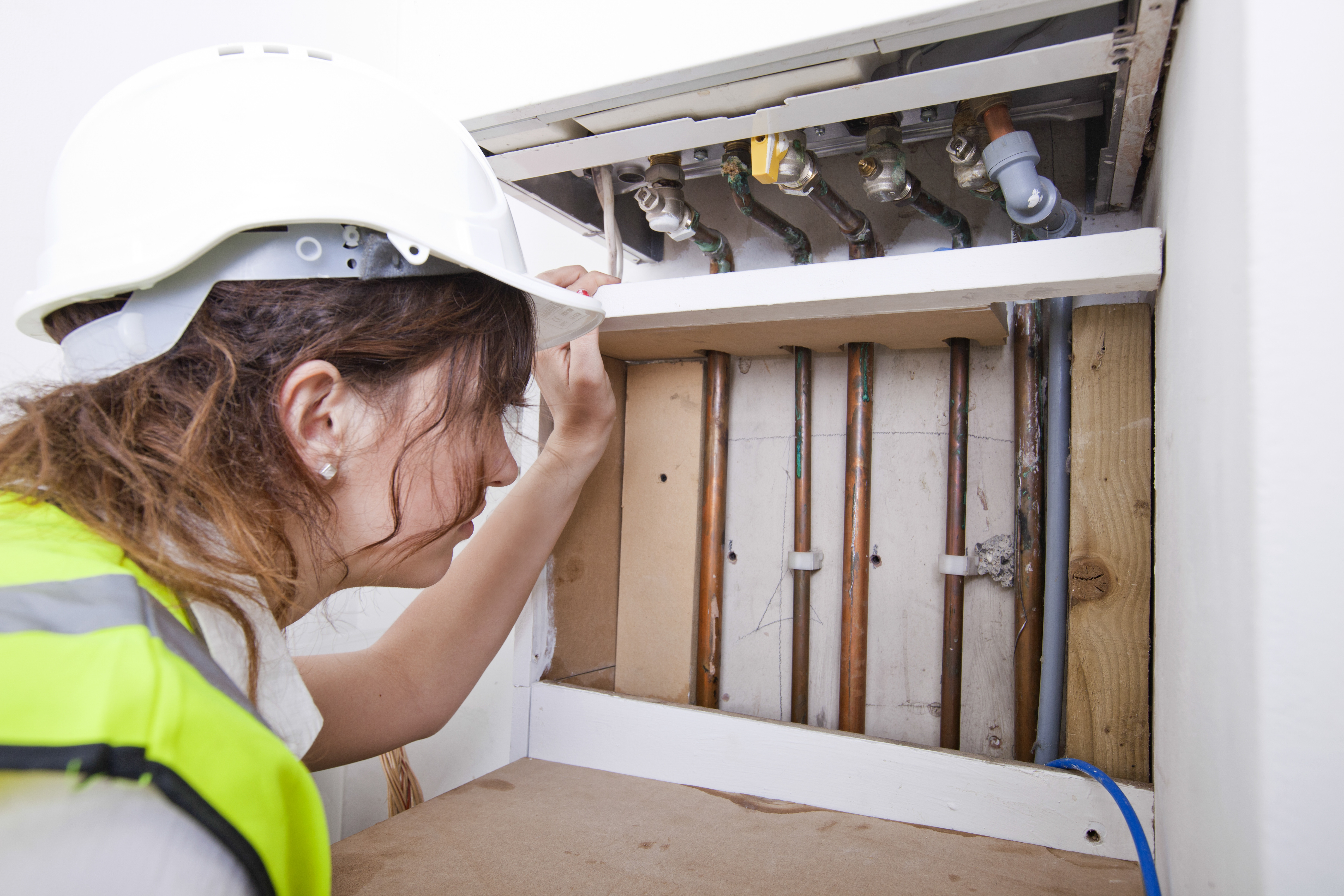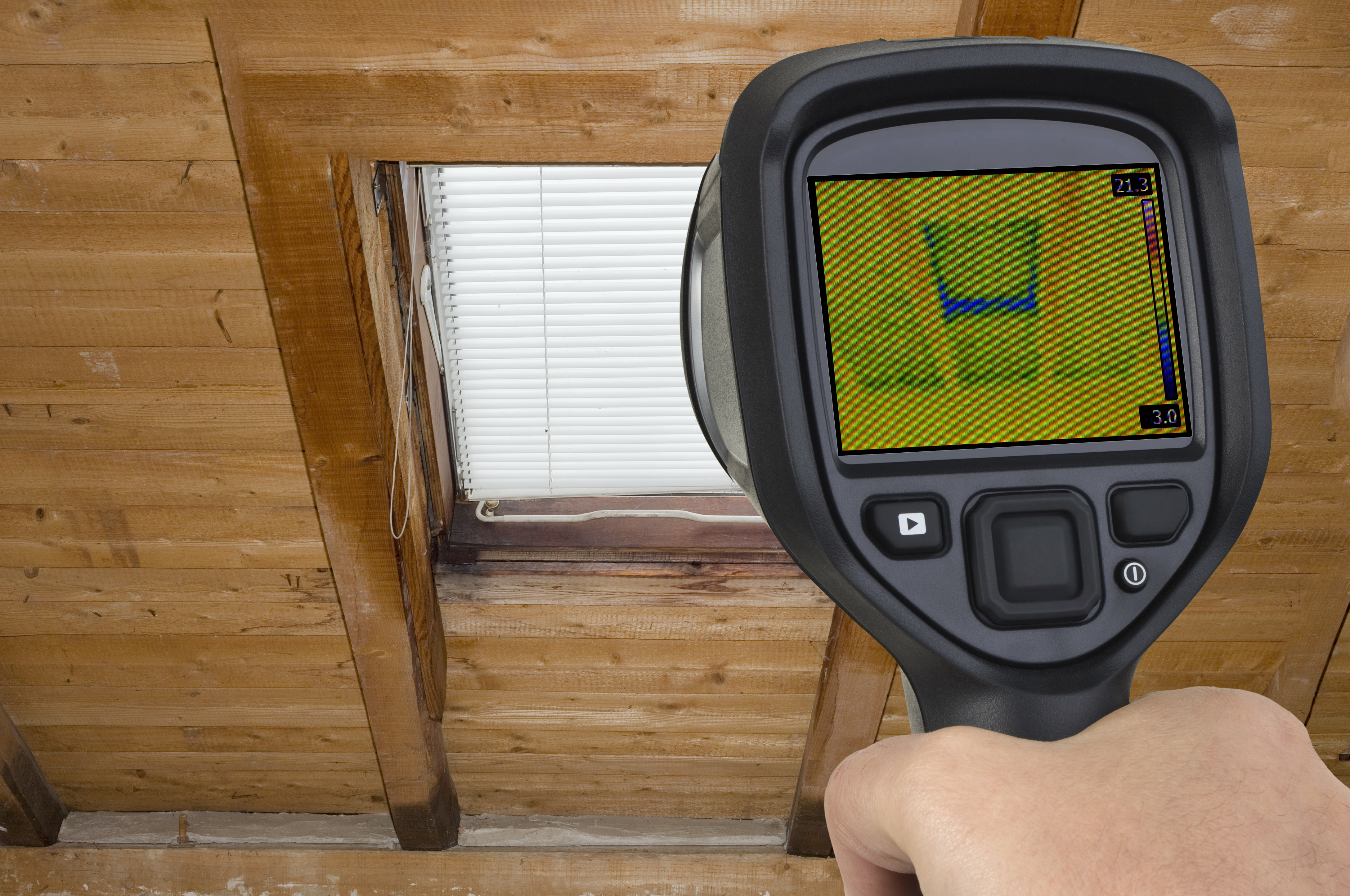When selling your home there is a good chance that the buyer will request a home inspection. Having too many issues in the home inspection report could send up red flags to the buyer that causes them to back out of the deal. Many of the issues found in home inspections can be remedied beforehand so that the home inspection will turn up nothing but a clean check of the home and useful suggestions on various aspects of the home. Ideally getting your home inspected prior to listing it for sale is best since a home inspector will go through your home just as they would for a buyer and give you a list of all the issues they find. With that pre-listing inspection list, you can repair those problem areas ahead of time so there is one less thing to cause your home sale to go bad.
Regardless of whether you decide to go the pre-listing inspection route or not there are some common issues found in home inspections that you should be aware of. By checking your home with regards to these common issues and making repairs before you list you are in a better position to reach the closing table. Additionally, you may end up saving yourself time and money since having to make repairs while under the deadline of a closing date means you may have to go with whoever is available and pay whatever price they charge since it has to be repaired.
TOP ISSUES TO BE ON THE LOOKOUT FOR
1. Electrical
Electrical Issues are the number one issue to be on the lookout for as they are one of the most common problems found by home inspectors. You should be checking to make sure all your electrical outlets work properly, that there are no defective electrical outlets, and that all GFCI outlets work properly. Burnt-out light bulbs should be replaced and any electrical switches that no longer work should be looked at to determine the problem and repaired.
The main electrical panel will be inspected to make sure it meets quality and safety standards. If the electrical panel in your home is very old it will be noted on the inspection report. While it may be working for you now it is possible that the home inspector will recommend replacing the electrical panel due to age and safety concerns so be ready for that possibility. Upgrading a very old electrical panel prior to selling may be a wise investment as that will allow buyers to be comfortable knowing the electrical panel is new and can handle any future upgrades.
2. Water and Plumbing
Drippy faucets, leaking drain pipes, or faucets that spray water in the wrong directions should be repaired prior to listing your home for sale. Water and plumbing issues are very sensitive matters for buyers and have resulted in many deals being canceled because the water or plumbing issues were costly to repair and could not be done in time before closing. You also should avoid do it yourself repairs for water and plumbing issues for all but the simplest tasks. Home inspectors will note where repairs look less than professionally done and will suggest a redo of the work to buyers prior to closing if there are issues.
Mold or other damage from water is always a big concern for buyers and will always be noted on an inspection report. Any past water damage that has been repaired should be fully disclosed on the home disclosure forms. If the water damage is not disclosed and a home inspector finds the water damage it will be mentioned to the buyer which can result in a buyer walking away from a deal because failure to disclose one issue may mean there are more issues buried within the home. Homes suffer from water issues quite frequently. Repairing the cause of the water damage, the water damage itself and disclosing to potential buyers is the correct thing to do and will save you from a deal falling apart.
3. HVAC
Your Heating Ventilating and Air Conditioning (HVAC) is a major mechanical system of the home and will be looked at during the home inspection. Prior to putting your home on the market you should make sure everything is in good working order and replace any filters in the HVAC. Ideally, you should have an HVAC company come out and perform a tune-up on your system. As part of the tune up the HVAC company will be able to pinpoint any problems and repair them before a home inspection. Repairing any issues beforehand will save you money and time since you will be able to shop around the repair work in the event the cost to repair is higher than expected. At the last minute with a closing deadline looming you may not have the luxury of shopping around.
4. Smoke & Carbon Monoxide Detectors
Ensure that your smoke and carbon monoxide (CO) detectors are functioning properly as home inspectors do check their operation. Most smoke and CO detectors are very easy and cost effective to replace if there are problems with them. To add some more value to your home you might consider replacing old smoke detectors with one of the new smart smoke detectors that interface with other
smart devices in and around the house. Either way if the smoke or CO detector is not functioning, make sure to replace them with new working devices so it is not an issue on your home inspection.
5. Windows

In addition to making sure your windows are clean both on the inside and outside you should also make sure all window hardware is intact and the window can operate properly. Windows should be able to freely move up and down and all the weather stripping should be in good condition. If the window does not move freely or the weather stripping is worn, decayed or not there it will be noted on the home inspection report. While the chances of being asked to repair/replace items like weather stripping are not as likely since it is a lower cost item that the buyer can handle on their own that does not mean some buyers through improper guidance from their agent won’t make it an issue. So the best bet is to make sure the window is properly operational for opening and closing and that all weather stripping is present and looks in good condition.
Cracked windows should always be replaced as they will be noted on the home inspection report and represent a safety hazard if not replaced. When you have fogging in between the window panes, that is an indication of broken window seals which require the windows to be replaced. Ideally replacing windows that have broken seals beforehand will prevent the home sale from being delayed by a request to have those windows replaced. If you chose not to replace broken seal windows prior to listing your home on the market then expect that to become a matter that the buyer will ask for replacement or a reduction in the final sales price. For showing purposes fogged windows are noticeable and can have the effect of the buyer wondering what else may be wrong with the home and that maybe they should avoid this home for fear of other issues.
6. Pests
While you may not have pests at a particular time the evidence of their infestation will cause concern with buyers. Pests (termites, mice, squirrels) that can damage wood, electrical wiring, and insulation should be treated professionally to ensure the problem no longer exists. If the damage is extensive or has occurred over a long period of time it is best to have a contractor evaluate the condition of the damage and repair/replace the damaged areas as needed. Pest damage can happen in almost any home, by being proactive, repairing pest damage and maintaining records of treatments and repair you will be viewed as a responsible homeowner who took care of their home and that will make buyers happy.
7. Foundation Cracks
Small cracks in drywall usually do not cause much concern since when a house settles or shifts with the changing temperature drywall cracks can happen. What will cause concern in an inspection is when the shifting or settling of a home has caused noticeable issues such as doors that may not close properly, clear settling of parts of the home where other parts remain stable, water intrusion in the basement area or the foundation has cracked. In cases of excess shifting or settling of the home a qualified contractor should evaluate the home for correction of the problem. If your foundation has been properly repaired by a contractor, having a long-term or lifetime transferable warranty on the work will go a long way to assuring buyers that they are not purchasing a money pit. Always check with the contractor as to what type of warranty they will provide and if that warranty is transferable to later owners.
8. Doors

Doors in the home will be inspected for operation. The home inspector should verify that doors open, close and lock where needed. Cracked or broken doors are generally noted on the home inspection. While cracked or broken doors may not be a deal killer, fixing or replacing those problem doors before listing the home on the market is advisable.
Problems with garage doors can cause a deal to fall apart since due to the weight and the operation of garage doors they are a major safety concern. Garage doors with safety sensors that don’t work properly, have been improperly installed or have been bypassed will be noted on the home inspection report. Garage doors with bad or worn rollers, excessively noisy opener motors or other bad hardware are also noted. Prior to listing your home for sale getting a garage door tune-up by a garage door service should be will help in identifying and repairing any potential problems.
BOTTOM LINE
Sometimes investing a little money upfront to take care of the above noted inspection issues can save you from wasting money down the line. Buyers will only wait so long and accept only so much compromise before they decide the home is not worth it to them with the issues found and decide to walk away. So double-check your home before listing and repair any issues so you can close the first time.
Originally posted on CinciNKYREALESTATE.com written by Paul Sian

